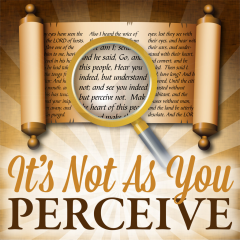Is it reasonable to expect the average 21st century man or woman, or that matter a mature self-professing Christian, to bee able to read and fully understand their Bibles? I mean: can we simply pick-up a copy of the King James Version/the NIV/the ASV/etc.–turn to, let’s say, a passage from one of Paul’s epistles, and glean from that reading a true understanding of everything that Paul was addressing? I used to think that I could do just that. And if by some tricky turn of phrase that Paul may have used I became stumped, certainly one or two of the various Bible commentaries that sat under-utilized on my bookshelf would effectively “unstump” me and set me on the proper path towards understanding. I would imagine this same scenario has played out countless times around the globe.
It goes without saying that Paul’s writings alone have done more than any other single writer or contributor to the Bible, to shape and influence the westernized Christian faith that I often refer to as Churchianity. More than Moses, David, the major and minor prophets; certainly more than the Apostles John, James (the brother of Yeshua), and Mark–and dare I say even Yeshua the Messiah (although He is not known to have pinned any portion of the Bible) who was the central focus of the entire Bible from genesis to Revelation.
Why is this so? Have you ever contemplated this reality? This one question has haunted me for the better part of 3 or so years. The funny thing is that when someone dares to question why Paul’s writings carry the weight they do in the Churchianity of the 21st century and before, one is often given a very harsh and bitter response–one might even be labelled a heretic or cultist. But has this not always been the case within and without the impermeable walls of western Christianity? Whenever one challenges or questions established perceptions of the orthodox or fundamental faith, he or she is immediately branded an enemy of the State–i.e., Christian State–off with their head! All one has to do is visit 4th century to present day fundamental Christian history to learn of the atrocities committed by self-professing Christians in the name, glory, and honor of Jesus Christ and the Church.
But let me get back to Paul. My concerns about Paul’s profound infuences on Churchianity are somewhat complex and certainly not always easy to vocalize or codify. To begin with, to the uninitiated, Paul seems to be hostile to Yahweh’s laws (i.e., often referred to as the Law of Moses): Rom. 6:14; 7:6, 7; 8:3, 7; 9:21; Gal. 2:16, 19; 3:10, 13; 4:5; 5:3, 18, 23; 6:13.
I found these passages to be somewhat confusing given the expressed fact that Paul identified himself as a former Pharisee. Did Paul’s conversion while on the road to Damascus and while he convalesced in Arabia completely reverse his affinity for the laws and commandments of Yahweh? That being said, Paul’s aversion to the laws certainly has translated into the general aversion to Judaism and the “Laws of Moses” in today’s Churchianity. But it would seem that westernized Christianity may not have the record accurately set.

Recent Comments